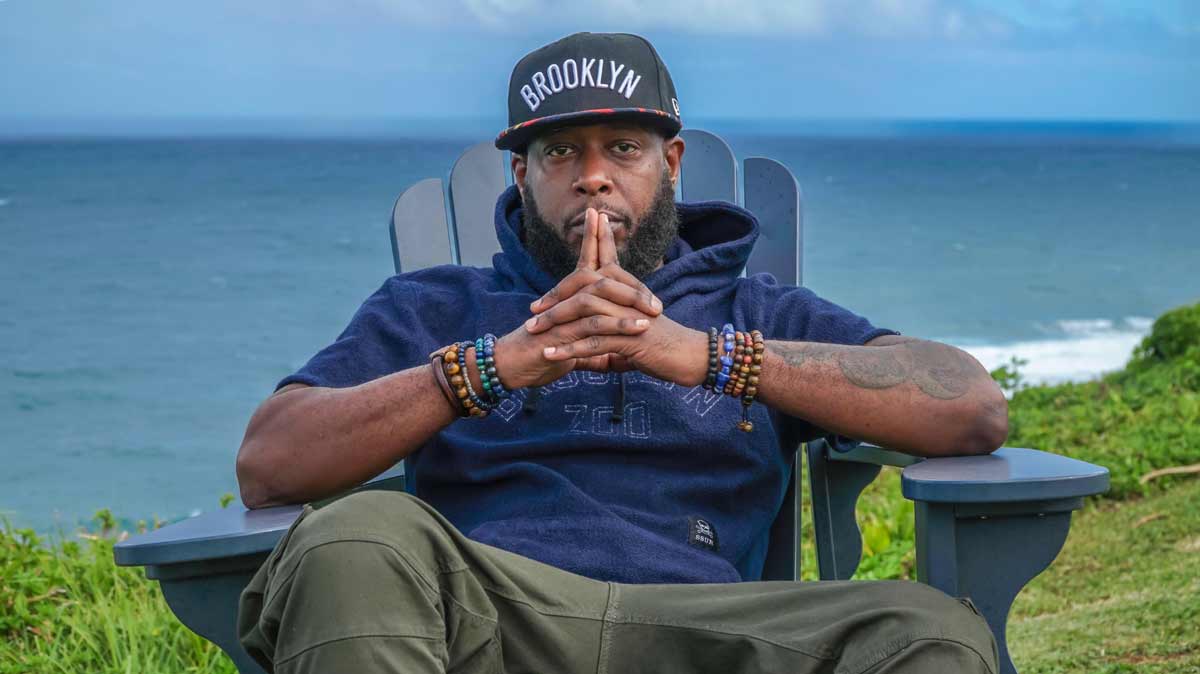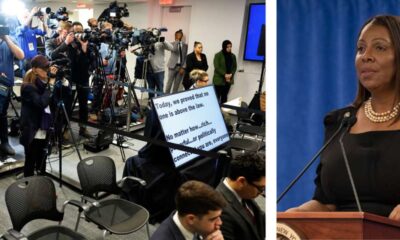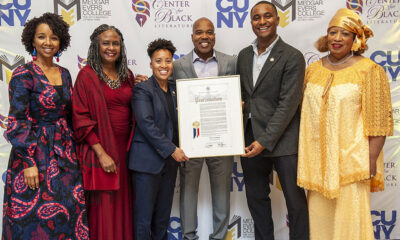Editorial
How Do We Fight Back?

“Flesh on the Ground in the Trump Era”
By Talib Kweli Greene
This is the first of a 3-part essay , “Flesh On the Ground in the Trump Era” by hip-hop artist and activist Talib Kweli Greene.
If you grew up in New York City in the 1980s, avoiding the orange phenomenon known as Donald Trump was damn near impossible. He was everywhere, attending parties and premiers, and dating fashion models. His first mention in the mainstream media ever was a 1973 story in the New York Times about how he was being sued for housing discrimination. Much like the gaudy, decadent TV show Lifestyles Of The Rich and Famous, Donald Trump represented every stereotype the poor and working-class masses had about rich people in the 80s. That spoiled, entitled, hyper-violent, sexist villain seen in so many 80s teen comedies? Donald Trump was a father figure to that caricature. And it was fine, because as long as all he was doing was making sure poor New Yorkers of color had a hard time living in his buildings, he was tolerated. Scratch that, he was celebrated. Donald Trump, son of a billionaire slumlord and Ku Klux Klan supporter, was seen as a symbol of the American Dream, the physical embodiment of wealth itself.
So when Donald Trump put out a full-page ad in the New York Post demanding that the Central Park Five, black teenagers who were later exonerated by DNA testing, and set free, should be given the death penalty for a crime they had yet to be found guilty of, it was dismissed by mainstream media as Trump just being Trump. When reports began to surface about Donald Trump saying things like “laziness is a trait in the blacks” and “the only kind of people I want counting my money are short guys that wear yarmulkes every day,” they were dismissed as Trump just being Trump.
Personally, I always recognized Donald Trump’s racist dog whistles. I would cringe whenever my favorite rappers would mention him in lyrics as a symbol of opulence. When he began doing reality TV, while overseeing failed business venture after failed business venture, while declaring bankruptcy four times, Trump began to make more sense to me. He was a clown, a court jester, an empty suit. I was fine with letting him pretend to be the boss and fake-firing people on TV. Donald Trump’s tangible effect on my life wasn’t realized by me until he was triggered by the election of the first black president in United States history, Barack Hussein Obama.
And triggered he was. There was something about Obama that just didn’t sit
right with Donald Trump, and being a famous white man he was given an incredible platform to speak on this at length on Fox News, often. As the world’s most famous birther, Donald Trump went out of his way to normalize the very racist lie that Obama was not born in America. According to Trump, Obama had to be lying. He offered no proof of this, other than Obama seemed foreign to his sensibilities. If you grew up the son of a billionaire Ku Klux Klan supporter, you were promised a world in which no black man would ever have authority over you. Barack Obama’s mere existence destroyed Donald Trump’s world, and so he made disparaging Obama his main focus.
Dedicating his life to destroying Obama’s credibility made Donald Trump a darling of the far right and the Tea Party. The party of no now had a celebrity spokesman, one who was fun to watch whether he made sense or not. And as long as Trump was anti-Obama, it didn’t matter whether he aligned with so-called conservative Christian values. Being anti-Obama was all that was needed to elevate Trump from a reality TV show star to a serious GOP presidential contender. Like many left-leaning progressives, I was naive to how much of a shot Donald Trump truly had.
As a working artist, I’m blessed to travel the world seeing humanity at its very best. The people who come to my shows are compassionate and intelligent and they stand for justice. I am blessed to choose who I want to work with and be around. My friends who aren’t artists for a living don’t have this luxury. They are forced to commute daily to jobs that help some boss get richer than them while working around people they may not even like. These people had a more realistic view of Trump’s chances. My friend Seth Byrd, a plumber by trade, told me Trump had the election in the bag. I bet him a dollar Trump would lose. I still owe him that dollar.
This is the first of 3-part essay, “Flesh On the Ground in the Trump Era” written in 2016 by hip hop artist, activist, and writer Talib Kweli Greene and republished with permission of the author.











